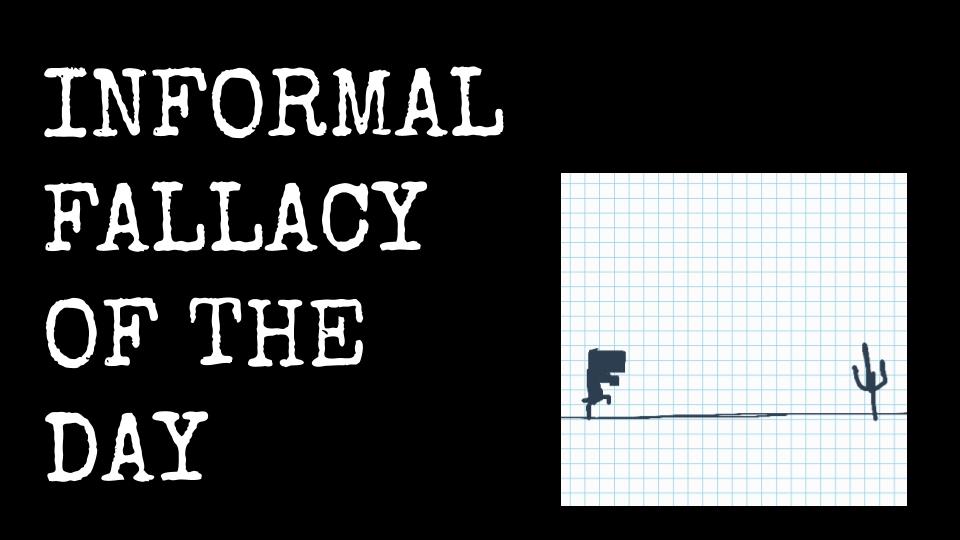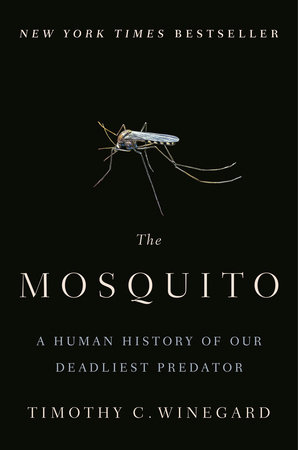Death in the Clouds (Pt. I)

Religion has actually convinced people that there's an invisible man living in the sky who watches everything you do, every minute of every day. And the invisible man has a special list of ten things he does not want you to do. And if you do any of these ten things, he has a special place, full of fire and smoke and burning and torture and anguish, where he will send you to live and suffer and burn and choke and scream and cry forever and ever 'til the end of time! ...But He loves you!
~George Carlin
Debemos arrojar a los océanos del tiempo una botella de náufragos siderales, para que el universo sepa de nosotros lo que no han de contar las cucarachas que nos sobrevivirán: que aquí existió un mundo donde prevaleció el sufrimiento y la injusticia, pero donde conocimos el amor y donde fuimos capaces de imaginar la felicidad.
[We should throw, into the ocean of time, a bottle full of the tales of our cosmic shipwreck, so that the universe will know of us what the roaches that survive us won't be able to say: that this was a world where suffering and injustice prevailed, but where we nevertheless knew love and were capable of imagining what happiness might be like.]
~Gabriel García Marquez1
Important Concepts
Back to Genesis
Today we reassess divine command theory (DCT), an approach to ethics that, like social contract theory, goes back millennia. Assessing this theory is complicated, however, in that DCT makes metaphysical claims (i.e., claims that go beyond the scope of science). Thankfully, a field that we were introduced to in Endless Night (Pt. II), cognitive science, has a theoretical/conceptual branch: philosophy. So today we will look at the conceptual issues that surround DCT.
We should also remind ourselves that DCT in this course, because one of our desiderata for an ethical theory was that it solve the puzzle of human collective action, has always included a purely descriptive, atheist option. That is to say, we can accept DCT along with the existence of God as a theoretical framework that explains morality through the supernatural. Call this DCT (theist) version. Or we can accept that the supernatural does have a role in explaining morality, but we can deny that supernatural beings actually exist. Call this DCT (atheist version).2
Empirical and Ontological

The empirical claims of both versions of DCT are numerous and many times at odds with each other. Obviously an atheist is going to be opposed to various empirical claims made in Christian sacred scriptures that do not cohere with her worldview. Similarly, there is one very large ontological claim that theists make that atheists don't make: the assumption of God's existence. In this lesson we will study both the tension between the atheist and theist camps of DCT, as well as what both camps of DCT agree on, namely that the rise of civilizational complexity is correlated with and perhaps caused by the rise of Big Gods. To be sure, debates between the atheists and theists are best studied in a course on Philosophy of Religion. So, I'll keep my comments on this tension brief in the first half of this lesson. In the second half we'll study the debate between divine command theorists of some kind, i.e., what divine command theorists of both the atheist and theist camps agree on, and people who argue divine command theory is false in all its guises.
So what do both atheist and theist advocates of DCT agree on? After "revelation", human societies increased in complexity as religious devotion to God spread. Let's call this the Big Gods hypothesis. The second claim they might agree on is the following. Watched people are well-behaved people. Let's call this the social monitoring hypothesis. We'll refer to the question regarding God's existence as the ontological question. Theists answer the ontological question in the affirmative; atheists obviously answer it in the negative.3✝


The Ontological Question
Philosopher David Chalmers.
Let's begin with the question of God's existence. This is not the course for a thorough review of all the arguments for and against God's existence. What can be said is that no argument for God's existence receives universal support and/or proceeds without criticism. To be honest, if you look at the field of philosophy as a whole, theism is losing. Seventy-three percent of philosophers are atheists, per a recent survey (see Bourget and Chalmers 2014).
The question of theism is only really considered within philosophy of religion and theology, with most other academic disciplines either not addressing metaphysical questions like this (since they are outside the purview of science) or addressing the issue in a way that does not take a position on the actual ontological question (for example see Ehrman 2014). Since theology explicitly assumes that God exists, this won't actually help us answer the question of whether God exists or not. So we'll have to look at philosophy of religion.
This does not mean that philosophers of religion are an unbiased group. Per the survey sighted earlier, most philosophers that are also theists choose to focus in philosophy of religion. This is to say that theists are disproportionately represented in philosophy of religion (see section 3.3 of Bourget and Chalmers 2014). Nonetheless, those atheists who actively work in the philosophy of religion meticulously critique every argument for God's existence that gets churned out, as we'll see. Let's take a look at one argument for God's existence, as well as the atheists' responses.
The Teleological Argument
In the early 19th century, there was an approach to theology called natural theology. Natural theologians assumed God's existence and sought to discover the grandeur of God's handiwork by studying the natural world. This was all primarily due to William Paley. Paley advocated natural theology as a method of discovering (and praising) God’s work. It was perceived as an act of devotion. In fact, this is why Charles Darwin’s father, realizing his son’s waning interest in medicine (his first career choice), recommended that Charles take up theology instead. While studying theology, Charles fell in love with the study of nature. (Ironic, isn't it?) See chapter 1 of Wright's (2010) The Moral Animal for a brief biography of Darwin.
Let's take a closer look at natural theology. One of Paley's arguments is well-known and goes by many names. We'll call it the teleological argument. It can be summarized as follows:
- A watch displays order for a purpose.
- We correctly conclude that such order was created by a maker.
- The universe also displays order for a purpose.
- Therefore, we should likewise conclude that it was created by a maker.
Paley's argument structure is that of an analogy. Just as some objects in our world (e.g., watches) display some sort of function for a purpose, the universe itself appears to be for a purpose. This is because they both have makers. Thus, God's existence is established.
Objections
Breaking the analogy
The Great Infidel, philosopher David Hume, made a comment relevant to this argument (although Hume had died before the publication of Paley's work). Hume made the point that in order for an analogical argument to work, you have to know the two things you are comparing. That is to say if you are comparing, let's just say, life to a box of chocolates, in order for the comparison to work, you'd have to know both things fairly well. We are, of course, alive. And most of us have had experience with those boxes of assorted chocolates, where some items are very tasty but some are filled with some kind of gross red goo. The box of chocolates takes you by surprise sometimes, just like life. The analogy works because you know both things.
So here's the problem that this poses for the teleological argument: maybe you've seen a watch get made, but you've never seen a universe get created. You're comparing a thing you know and can even learn how to make (a watch) to a thing you don't understand fully and whose genesis even theoretical physicists are unsure of (the universe). So, Hume would say, the analogy doesn't work.
Denying premise #3
Another strategy is to deny that premise #3 is true. If successful, this objection would undermine the soundness of the whole argument. The argument might go like this. First off, we can say that the universe does not display purpose. Even though there are some regularities in the universe (like stable galactic formations and solar systems), none of these have any obvious purpose. What is the purpose of the universe? What is it for? These appear to be questions without answers, at least not definitive ones.

Some atheists (e.g., Firestone 2020) go further and attempt to dispel any notion that the universe might be well-ordered in any way. Firestone argues that the so-called regularities we do observe in the universe only appear to be regularities from our perspective. For example, we know that the early universe, soon after the Big Bang, was very chaotic (Stenger 2008: 121). Further, some parts of the universe are still chaotic (galaxies crashing into each other, black holes swallowing entire solar systems). We couldn't see much of that during Paley's time, and so Paley might be forgiven, but to continue to argue that the universe is well-ordered and displays function seems to be anachronistic (or out of sync with the times).
Some theists might respond to the objections above by arguing that some of the universe does have a function. Perhaps the function of our part of the universe is to harbor human life. If this is the argument, then there is a glaring problem with it. We must remind ourselves that human life on this planet is only temporary. This is because life on this planet will be impossible somewhere between 0.9 and 1.5 billion years from now (see Bostrom and Cirkovic 2008: 34). At this point, the sun will begin to enter its red giant phase and expand. It might consume the planet. Or it might simply heat up our planet until complex life is impossible. In either case, harboring human life would not be one of the functions of Earth.
Lastly, even if we agree that there is some kind of order to the universe, this is not the same kind of order that is seen in a watch. Rather, it is merely the sort of patterns you would find in any complex system. That is to say any sufficiently complex system gives rise to perceived regularities. This is usually referred to as Ramseyian Order (see Graham & Spencer 1990). In other words, this means that Paley is guilty of an informal fallacy; he used the word "order" with two different meanings (see Firestone 2020).

Equivocation is a fallacy in which an arguer uses a word with a particular meaning in one premise, and then uses the same word with a different meaning in another premise. For example:
- Man is the only rational animal.
- No woman is a man.
- Therefore, no woman is rational.
In this argument, the word "man" is used with two senses in mind. In the first premise, "man" (sexist as this may be) refers to the human species. In the second premise, "man" refers to the male gender. If you were to replace the word "man" in each premise with their definitions, the argument would no longer flow, and it would be clearly invalid. Try it.
Firestone argues that this is what Paley did in the teleological argument. In other words, the word "order" has one meaning in premise 1 (functional order) and a different meaning in premise 3 (Ramseyian order). Hence, the argument is invalid. And so, one of the most well-known arguments for God's existence fails.


Worse problems
The Problem of Evil

John Mackie, atheist
and moral
error theorist.
To have no uncontested arguments for answering the ontological question in the affirmative is very problematic for the theist version of DCT. Even worse is when atheists go on the offensive (e.g., see Mackie's Evil and Omnipotence).
There is a famous argument against the existence of God. We will refer to it as The Problem of Evil. Briefly, it states that the world as we know it, a world full of suffering, is incompatible with the existence of an all-powerful, benevolent God. That is to say, if God really is all-powerful and all-loving, he would stop all the unnecessary suffering in our world, everything from natural disasters (like earthquakes) to tiny bacteria or viruses that are less than a micrometer wide (like Yersinia pestis which caused the Black Death or the H1N1 virus that caused the 1918 influenza pandemic). That is because these disasters do nothing by way of "teaching" us anything. In fact, throughout most of human history, their causes were completely unknown to us. The suffering caused by that death appears to be "unnecessary" in the sense that nothing was gained from it. Would an all-powerful, all-loving God really allow this?3

To take another example, re-consider our deadliest predator: the mosquito—which we first discussed in Playing God. Winegard (2019: 2) provides the following statistic: “The mosquito has killed more people than any other cause of death in human history. Statistical extrapolation situated mosquito-inflicted deaths approaching half of all humans that have ever lived.” Why does the mosquito even exist? Elsewhere, Winegard makes the point that, as far as we can tell, mosquitoes appear to only serve two functions: to kill humans and to make more mosquitoes. Does this look like the world that an all-powerful, all-loving God would create?
Here is the Problem of Evil in argument form:
- If God exists, then there would be no unnecessary suffering.
- But there exists unnecessary suffering.
- Therefore, God does not exist.
To be clear, the Problem of Evil isn't blaming suffering on God, an interpretation that some theists sometimes mistakenly make. The Problem of Evil is instead making the claim that—if we assume God as having the traits of being all-powerful, all-knowing, and all-loving—God's existence is impossible given the type of world that we live in. This is not the place for a careful analysis. But it's important to note that this is a powerful argument against theism; one that theists have to respond to satisfactorily if we are to accept the existence of God...
Debunking religion
A more ambitious strategy, from the atheist perspective, is to try to explain how religion arose as itself a product of natural selection. As we saw last lesson, Wilson begins his Darwin's Cathedral with a summary of Darwinism and a defense of the theory of group selection, where entire groups are adaptive units amenable to natural selection. In chapter 3, Wilson then begins to make the case that religious groups in particular might be adaptive units. First, he dispels the notion that belief in the supernatural is irrational.
“Suppose that behavior 1 is adaptive in mutation A but has no effect on fitness in situations B through Z. Why should the afflictions caused by B-Z lead to the abandonment of behavior 1? If the behaviors… benefit the group in many respects, why should they be abandoned because of plagues, droughts, invading armies, and other afflictions beyond the group’s control? The ability of a belief system to survive these shocks is to be admired from an adaptationist perspective, not ridiculed” (Wilson 2003: 102).
What Wilson is trying to say is that it may very well be the case that religion has been harmful or has led to some some erroneous beliefs. But(!) the important thing from the adaptationist perspective is that, if religion has proven to be adaptive (i.e., to help society function as a well-adapted social organism), then this is enough to establish that the hypothesis of the religious group as an adaptive unit is a viable one.
Wilson argues that religious systems like, say, Calvinism, actually do help society overcome many of its social obstacles. For example, Calvinism is internalized from a young age, since children memorize all the rules as part of their upbringing, an internalization that continues through prayer. “When it comes to turning a group into a social organism, scarcely a word of Calvin’s catechism is out of place” (Wilson 2003: 105). This internalization creates a community mindset. In addition to the belief system, a well-tailored social apparatus is prescribed by Calvinism. Strict protocols for the selection of pastors, deacons, elders, and members of the city government are codified. Moreover, continued monitoring of everyone’s role is regular, such as with pastors’ weekly meetings to ensure purity of doctrine and quarterly meetings whose express purpose was for the pastors to criticize each other (see p. 106). This made sure there was uniformity of belief, further strengthening the social unit. There was a meticulous procedure detailed for deviant citizens, and it appears that justice was meted out completely impartially, with even the sons of prominent families being incarcerated if they broke a rule. Families were also visited once a year to have their spiritual health examined (see p. 111), and church attendance was required. These are all ways that Calvinism turns the community into a social organism, capable of adapting to selection pressures such as internal tension, external threats, production of essential goods and services, etc. There is plenty more support for this view, Wilson argues. For example, Geneva clearly thrived during this time period, when Calvinism was the law of the city. Schools, hospitals, and welfare systems were initiated. It was even the case that their Geneva Academy eventually attracted students from throughout Europe.6
If religiosity itself can be explained as the product of natural selection, then there'd be little reason to suppose God actually exists. Instead, we're just predisposed to believing in God, and this is because religious belief systems have been adaptive (to groups) in the past.
But...
I won't pretend that the ontological question is resolved definitively here. We will leave the question of God's existence as an open question, at least for our purposes.5 This means that, in the second half of this lesson, we can unify DCT atheist and theist versions, and assess only their shared empirical claims: the social monitoring hypothesis and the Big Gods hypothesis.


To be continued...
FYI
Suggested Reading: John Mackie, Evil and Omnipotence
Supplemental Material—
-
Video: Crash Course, The Problem of Evil
-
Video: Bart Ehrman, God and the Problem of Suffering
-
Video: Crash Course, Aquinas and the Cosmological Argument
Advanced Material—
-
Reading: Randy Firestone, Paley’s version of the Teleological Argument is Based on an Equivocation Fallacy: There is No Order in the Universe Which Resembles the Order of a Watch
Footnotes
1. Translation by the instructor, R.C.M. García—no relation to García Marquez.
2. Recall also that we are only superficially privileging Christianity over other religions when we conceive of DCT. It just happens to be the case that most students in Southern California are more familiar with Christianity than, say, Sikhism. It's a good time to remind students that we can conceive of a DCT based on Islam, Sikhism, Hinduism, etc. We are covering the Christian (in particular Catholic) version primarily out of convenience.
3. It should be noted that I was inspired to include DCT (atheist version) by the work of Ara Norenzayan, particularly his book Big Gods. To be clear, then, when we refer to the Big Gods hypothesis in this class, we'll mean the hypothesis that human societies increased in complexity as religious devotion to Big Gods spread. It should be added that Norenzayan's own work, which could just as easily be called the "Big Gods hypothesis" makes many more claims that we are not covering. The interested student can refer to his work, which is fascinating.
4. It was only in the 20th century that tectonic theory was accepted and that germ theory began to proliferate in the medical sciences.
5. Various philosophers in the 20th century (e.g., Rudolf Carnap) argued that some questions (like questions over the existence of God) are pseudo-problems, unsolvable squabbles that don’t deserve to be pondered.
6. In the same chapter (chapter 4), Wilson also muses that the Protestant Reformation can be regarded as a large number of social experiments in different adaptive landscapes with many failures for each success—like Darwin machines in action. As you may or may not know, different versions of Protestantism proliferated after Luther's protest. In some cities, some version of Protestantism stabilized (i.e., adapted) and was adopted by most of the members of the community (i.e., created offspring); in other cities, notably in Münster, an unstable form of Protestantism tried to take hold and the result was disastrous (i.e., extinction).
✝ I can imagine someone being upset at the word revelation being in scare quotes. It's just for the sake of being inclusive to the atheists.

